Latest Posts
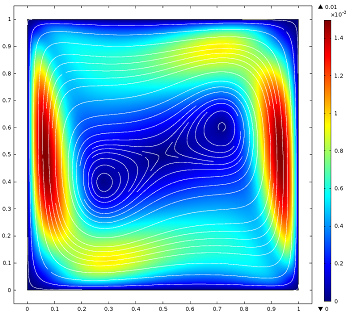
Using the Boussinesq Approximation for Natural Convection
Today, we compare the Boussinesq approximation to the full Navier-Stokes equations for a natural convection problem. We also show you how to implement the Boussinesq approximation in COMSOL Multiphysics software and discuss potential benefits of doing so.
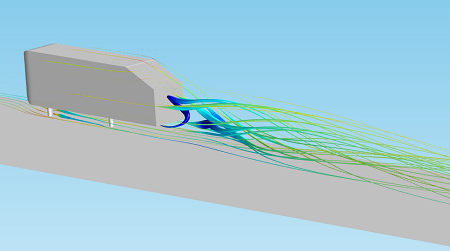
Studying the Airflow Over a Car Using an Ahmed Body
The Ahmed body is a benchmark model widely used in the automotive industry for validating simulation tools. We discuss simulating airflow over an Ahmed body to optimize automotive aerodynamics.
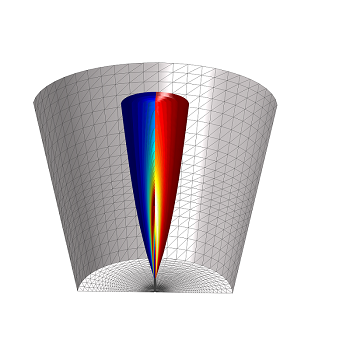
An Analysis of Syngas Combustion in a Round-Jet Burner
By combining the Reacting Flow interface and the Heat Transfer in Solids interface, we can study the syngas combustion in a round-jet burner. Get details…
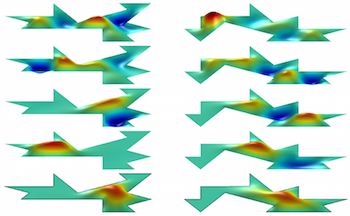
Can We Hear the Shape of a Drum?
Over half a century ago, Mark Kac gave an interesting lecture on a question that he had heard from Professor Bochner ten years earlier: “Can one hear the shape of a drum?”
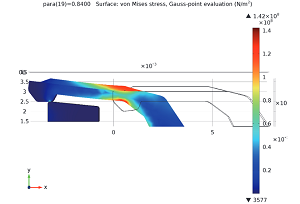
Simulating the Insertion of a Snap Hook
Snap hooks, a type of fastener that involves the insertion of a hook into a slot, are found in the automotive industry. Simulation can be used to analyze their insertion and removal.
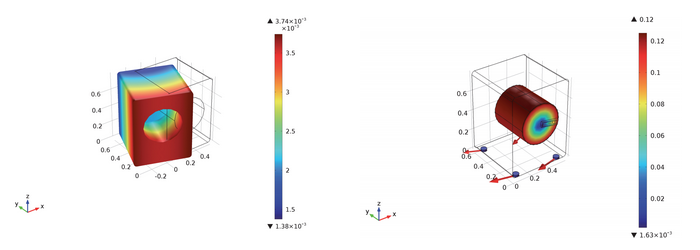
Instability in Portable Washing Machines
A varied distribution of clothing can cause walking instability in both traditional and portable washing machines. Multibody dynamics analysis can be used to avoid this effect in machine designs.
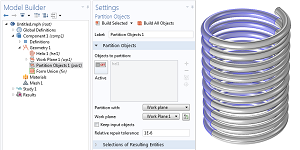
Improving Your Meshing with Partitioning
It can be tedious to subdivide your CAD geometry into a finite element mesh. In this blog post, we demonstrate how to use a manual meshing method called geometric partitioning to do so.
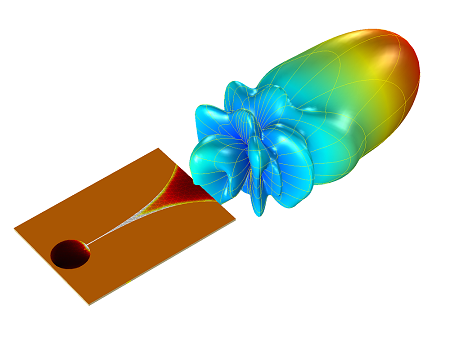
Vivaldi Antenna Design Analysis
Did you know the Vivaldi antenna was invented by someone named Peter Gibson? As the story goes, he had a passion for music and chose to name the antenna after Antonio Vivaldi, a Baroque composer.
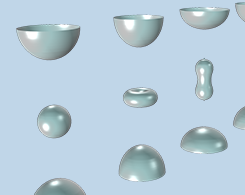
Tears of Wine and the Marangoni Effect
Have you ever noticed that when drinking a glass of wine, sometimes “tears” fall down in the inside of the wine glass? This is the Marangoni effect in action! Learn more and see examples…
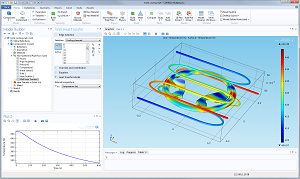
Simulating Injection Mold Cooling
Injection molding is the most common form of polymer manufacturing because large amounts of products can be produced quickly. By simulating this process, we can avoid defects in these products.
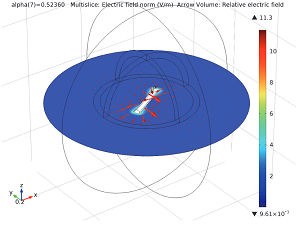
Modeling with Linearly Polarized Plane Waves
We use the Detecting the Orientation of a Metallic Cylinder Embedded in a Dielectric Shell model to demonstrate a specialized background field feature designed for linearly polarized plane waves.
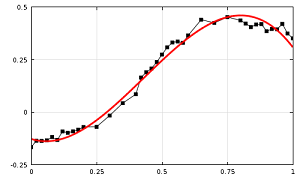
Curve Fitting of Experimental Data with COMSOL Multiphysics
Have you ever had to work with experimental data in a model? Learn how to fit smooth curves and surfaces to experimental data using the core functionality of COMSOL Multiphysics®.

COMSOL Multiphysics Wins 2014 Product of the Year Award
In 2014, COMSOL Multiphysics® was awarded the NASA Tech Briefs‘ Readers’ Choice Product of the Year. Learn more about the award and how it reflects the future of design engineering.

Your Introduction to the COMSOL Server™ License
COMSOL Server™ is a deployment product that can be used to share your simulation apps with colleagues, customers, and design teams. Learn about what you can do with COMSOL Server™ here.

Exploring the Natural Strength of Limpet Teeth
Fun fact: Spider silk used to be considered the strongest natural material in the world. That is, until researchers from the University of Portsmouth identified a new winner: limpet teeth.
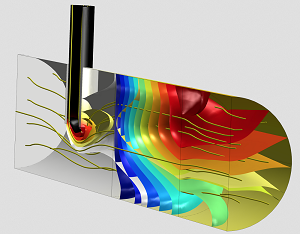
Using Simulation to Optimize Biopharmaceutical Processes
Did you know that you can use COMSOL Multiphysics® to study biopharmaceutical processes? Examples include pharmaceutical mixers, injection devices, dielectrophoretic separation, and more >>

Happy Birthday, Gustav Kirchhoff
Gustav Kirchhoff is known for his contributions to the study of spectroscopy, electrical circuits, and thermochemistry. Learn more about the German physicist here.
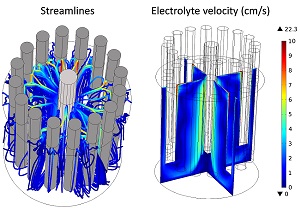
Modeling Current Distributions in a Molten Salt Electro-Refiner
A guest blogger from SIMTEC discusses how he uses simulation to analyze current distributions in a molten salt electrorefiner. Get details here >>

In the Spotlight: Conserving and Restoring Art with Light
Did you know that 2015 is known as the Year of Light? Further, light can be used to conserve and restore historic paintings and artwork. Learn more in this blog post.
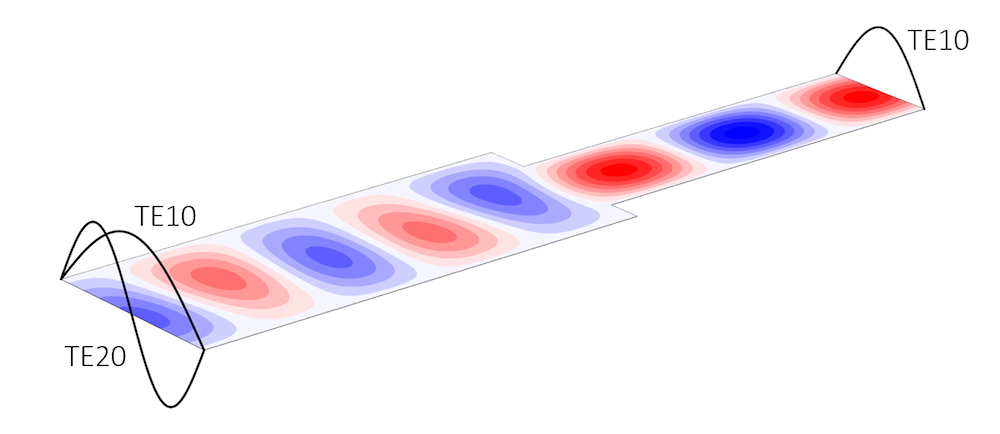
Ports and Lumped Ports for Wave Electromagnetics Problems
The Lumped Port boundary condition can be used to model boundaries through which a propagating electromagnetic wave will pass without reflection. Learn how to use this feature in your EM models.
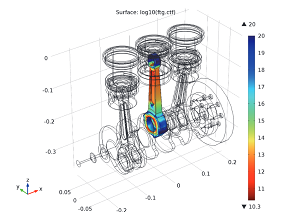
Improving the Operational Lifetime of a Reciprocating Engine
Many of today’s motor vehicles rely on reciprocating piston engines as their source of power. Multibody dynamics analysis can be used to analyze the operation and performance of these engines.
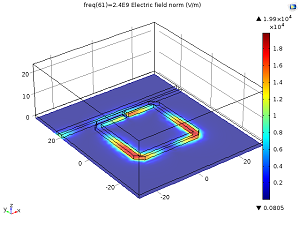
Using Numeric TEM Ports in Your Modeling Processes
In this blog post, get an introduction to the Numeric TEM Ports feature for modeling transmission lines, with an example of a notch filter with a split ring resonator.
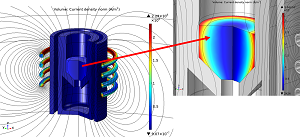
Tips and Tricks for Modeling Induction Furnaces
A guest blogger from SIMTEC gives an introduction to the principles of induction heating and shares insight into the modeling of induction furnaces.

Lab-on-Paper Technology Enhances Medical Diagnostics
Researchers at the University of Rhode Island built upon lateral flow test technology to facilitate the diagnosis of more complex conditions. Get the full story…



